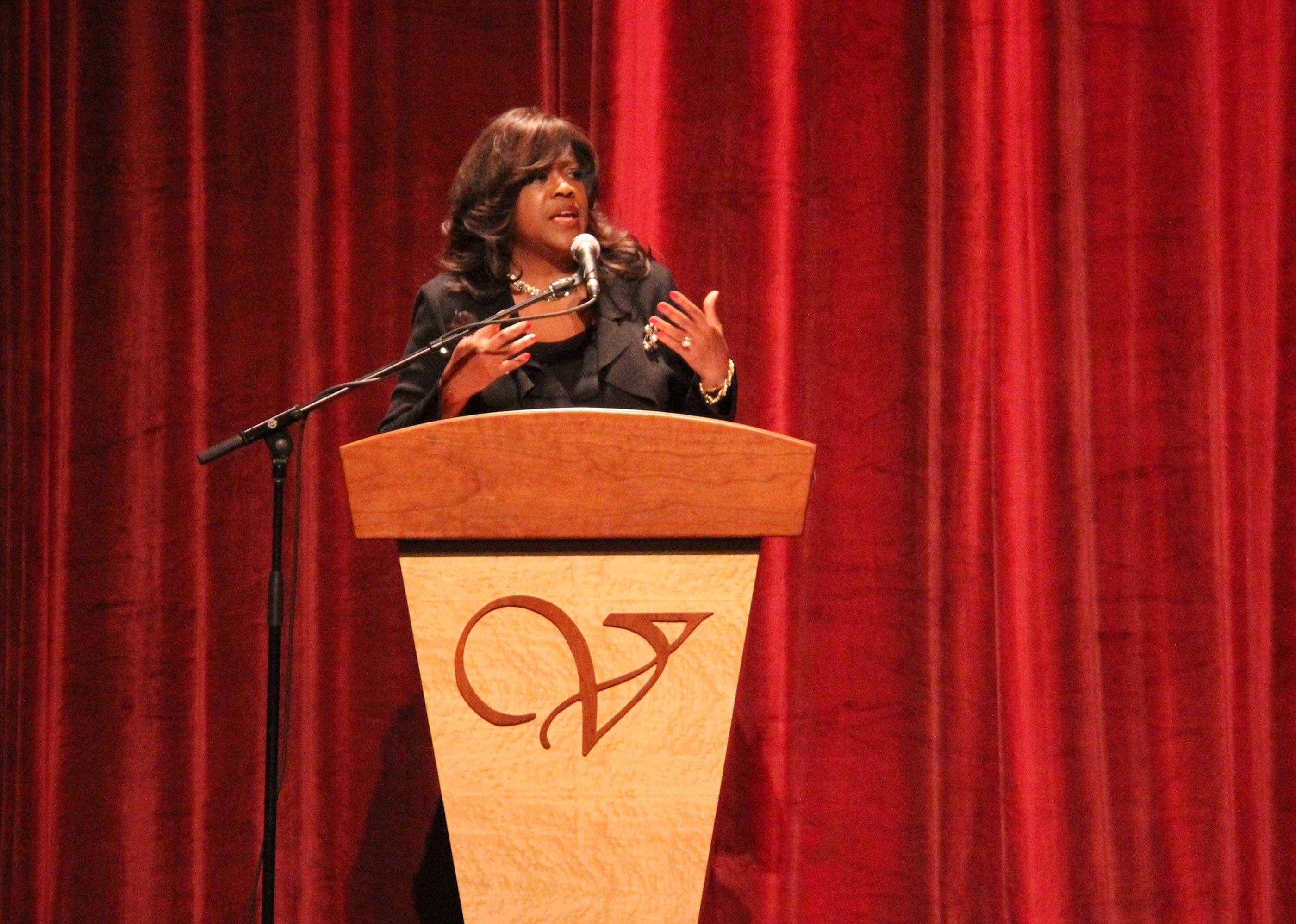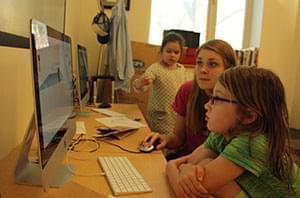Chaz Ebert Talks Films, Politics And Diversity In Hollywood; MakerGirl
The CEO of Ebert Companies - Chaz Ebert - gave us a preview of what films will be featured at EbertFest next month and spoke with us about the role of politics and diversity in Hollywood. We also learned about an effort to get rural schoolgirls more excited about math and science, via MakerGirl’s 3D-printing workshops.
Chaz Ebert on EbertFest, Hollywood

Chaz Ebert opens the 17th annual Roger Ebert Film Festival in Champaign, Illinois in April 2015.
Film buffs are already getting excited for the 18th annual EbertFest, which will be April 13-17 at the Virginia Theater in Champaign. Guillermo del Toro’s Crimson Peak are among the already announced headliners.
In anticipation of that, we spoke with the CEO of Ebert Companies, Chaz Ebert - not just about the upcoming film festival but also about her thoughts on the #OscarsSoWhite conversation, what she’s doing to help train young African-American students in Chicago to not just be critics, but critical thinkers, and her thoughts on the current political presidential race and her ideas on how to improve the tone.
MakerGirl Brings 3-D Printing To Young Girls

Caitlyn Deegan, sophomore in materials science and engineering, assists Nora, 8, with her 3D design of Mars. Nora attended the "Print Your Way To Space" workshop with MakerGirl on Tuesday, March 15, at the Business Instructional Facility at the University of Illinois.
Men continue to outnumber women in many fields of science and engineering. One Illinois program - MakerGirl - is trying to narrow that gap.
One of MakerGirl's cofounders, Julia Haried, joined us in the studio today to talk about her vision for the program and plans for a cross-country roadtrip to bring 3-D printing workshops to girls ages 7 to 10 in rural areas. Haried is a master's student in accountancy science at the University of Illinois.
Also joining our conversation today was Western Illinois University Assistant Professor Abha Singh. She’s a science education researcher who visits rural schools to do observations and provide feedback to teachers.
Singh said there are currently no rules for how much science education is offered to students in elementary school. In many rural schools, students do not have their first formal science class until middle school, and at that point, it can be hard to capture their interest in science, technology, engineering, and math (STEM).
I'll say what my parents used to say to me. When you educate a man, you educate a man. But when you educate a woman, you educate a whole village.”Abha Singh, WIU professor
Many schools in rural areas would benefit from having more support for teachers in the form of science curriculum and professional development opportunities, Singh said. There's also a need for better standards for science education across the nation.

